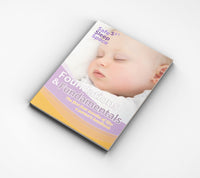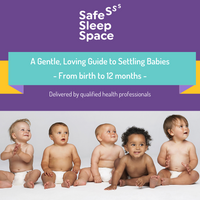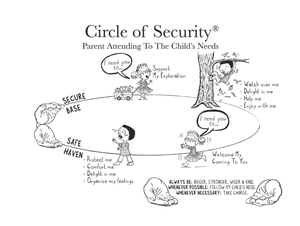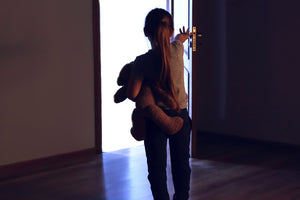How to Handle Your Baby's Inevitable Witching Hour

Parents of newborns have often heard of “the witching hour” and are all too familiar with what it means. In folklore, the witching, or devil’s hour, refers to the window of time at night when supernatural events occur. And although parents may feel that their special baby has been replaced by a little ghoul, time and gut maturity almost always bring improvement.
What is the witching hour?
The witching hour is usually a block of 2-4 hours in the late afternoon or evening. Sometimes it extends into the early hours of the morning.
The witching hour, which should be more accurately titled “the witching hours”, is characterised by a set of behaviours.
These commonly include the baby:
- Crying loudly, frequently and excessively.
- Looking as if they’re in pain, clenching their fists, going red in the face and tensing up their body.
- Being difficult to soothe, despite the parent trying everything they can.
- Wanting to feed more frequently and often calming when sucking.
Why does the witching hour happen?
Baby health experts commonly refer to the ‘normal crying curve’ to explain the pattern of crying between 2 weeks to 5 months. Crying tends to peak at around 2 months before gradually lessening by 4-5 months. Some babies only cry for around 30 minutes a day, though others, known as ‘high criers’ may cry for up to 5-6 hours each day. [1]
Experts in baby care don’t really know what causes babies to cry excessively in their first few weeks of life. Colic, reflux and gut sensitivities are often given as reasons why babies cry, though it’s hard to prove these. Some researchers believe that periods of intense crying are one way for a young baby to expend excess energy and deal with overstimulation of their nervous system.
Because young babies can be so unsettled, they easily become overtired. The longer they’re awake and unsettled, the more overtired they become which feeds into the cycle of them being wakeful and unhappy.
Young babies are rarely unsettled because of something their parents are or aren’t doing. It’s important to rule out physical causes for crying and if necessary, providing the right treatment. However, it’s good to remember that crying in an otherwise healthy and thriving baby can be completely normal.
Check if your baby is:
- Feeding well and getting enough milk to be satisfied.
- Growing as they need to. Speak with your Child Health Nurse and check your baby’s growth on their percentile (growth) chart. Hungry babies don’t settle or sleep well and it’s important to check the basics first before looking for more complex reasons for crying.
- Having the opportunity for sleep. Because an unsettled baby demands so much soothing and rocking, shshing and reassurance, it’s easy for them to become overhandled.
What can I do with my baby when they’re screaming?
The first thing to do is to look after yourself. Many babies start being unsettled when they’re a couple of weeks old and continue until they’re aged around three months. Caring for a wakeful, crying baby is exhausting and more like a marathon rather than a sprint.
Ask for help and accept all reasonable offers of assistance.
10 practical tips to help during the witching hour
- If your baby is aged from birth to four months, wrap or swaddle them in a light muslin or cotton wrap. Once your baby is rolling, it’s important to stop wrapping them and start using a safe sleeping bag.
- Give your baby a deep, warm bath and massage their tummy in a clockwise direction and gently bicycle their legs. This can help to relieve tummy pain and for wind to be passed.
- Offer extra feeds, especially if you’re breastfeeding. Most babies love to comfort suck when they’re unsettled.
- If you’re bottle feeding, check your baby isn’t feeding too quickly. Around 20-30 minutes is the ideal length of time for a bottle feed. Remember, tightening the screw cap helps to slow the flow of milk.
- Try to be organised with early preparation of the evening meal. This is especially important if you have older children to care for as well as the baby.
- Consider offering your baby a dummy. If you’re breastfeeding, avoid offering a dummy until your baby is around six weeks of age and breastfeeding is well established.
- Strap your baby into their pram and rock them gently back and forth. You could try using a carrier or a baby sling if they prefer to be close to you. Check here for baby sling safety.
- Hand your baby to another trusted adult and have a break yourself. Take a long shower, have a drink and something to eat. Nurture yourself for a while.
- Place your baby in their cot and pat and shsh them while they’re lying down. Always follow the safe sleeping guidelines and place your baby to sleep on their back.
- If you’re alone and feeling overwhelmed with your baby’s crying, put them in their cot and walk away. Create some space between you both and ring someone for support.
5 emotional tips to help during the witching hour
- Hold and rock your baby and reassure them that they’re okay. Although they may not calm, you’re doing what you can to support them psychologically.
- Practice mindfulness while you’re soothing your baby. Try to be ‘in the moment’ with them and just focus on what they need from you right now. Mothers particularly, can become anxious when thinking about how they’re going to deal with each day’s witching hour.
- Make a point of getting outside every day. Take your baby for a pram ride around the block, meet a friend for coffee, speak with another adult or just have a regular break.
- Make time to enjoy your baby. It’s easy to become focused on the challenges of early parenting and miss the joyful times. These are so important.
- Get professional help if you feel you’re struggling. Post-natal anxiety and depression are common for new mothers (and fathers as well). Make an appointment with your GP to talk about a mental health plan and support from a counsellor who specialises in maternal health.
About the Author:
Written for Safe Sleep Space by Jane Barry. Jane has qualifications in general, paediatric, immunisation, midwifery and child health nursing. She holds a Bachelor Degree in Applied Science (Nursing) and has almost 35 years specialist experience in child health nursing. She is a member of a number of professionally affiliated organisations including AHPRA, The Australasian Medical Writer’s Association and Australian College of Children and Young People’s Nurses.
References
Colic in babies | healthdirect
Clinical Practice Guidelines : Unsettled or crying babies (rch.org.au)
The Period of PURPLE Crying | PURPLECrying.info








